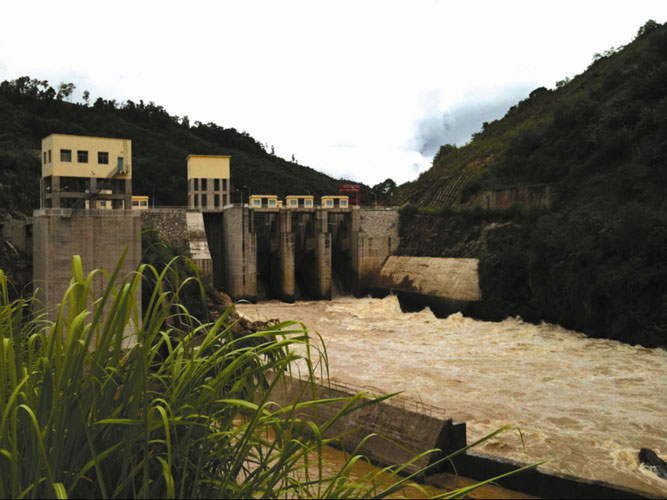Chiang Mai (Mizzima) – Two hydropower dam projects on the Shweli River in northeast Burma will displace 30,000 acres of arable lands, affecting local residents’ tea plantations, paddy fields and forests.

Shweli No. 2 and Shweli No. 3 dam constructions will largely impact the Taaung, aka Plaung.
The authorities have not offered compensation or land substitution to local residents, the Taaung Students and Youth Organization [TSYO] said in a press conference on the Thai-Burmese border on Tuesday.
The group findings were based on a survey carried out over a two-year period in Mong Mit, Manton and Nanhkan townships located near the two dam projects which are being built by Chinese and Swiss companies. The dams will generate a total of 1,570 megawatts.
“Although the government is carrying out the projects, it has not given compensation to the residents,” said Lway Poe Ki, who spoke at the press conference and was involved in the survey.
Because of the Shweli No. 3 dam project, the authorities have ordered an estimated 3,000 villagers from Molo, Nayone, Naya, Mohkat and Nasot villages to relocate about 30 miles from the villages by 2013.
Mai Aung Ko, a TSYO member, told Mizzima, “The villagers don’t know what to do for a living in the new location so they don’t want to move.”
In February 2010, the Ministry of Electrical Power 1 signed a contract with a Swiss company, Colenco Power Engineering, for the Shweli No. 3 hydropower project, which will generate 1,050 megawatts. In November 2009, the ministry signed a contract with China’s Huaneng Lancang River Hydropower Company Limited for the Shweli No.2 hydropower project, which will generate 520 megawatts. The electricity generated from the projects will be sold to China.
Mai Ohn Khaing, the secretary of the Taaung (Palaung) National Party, said the party was not aware of the situation, but would conduct a field survey.
“We don’t know much about the situation now. Our party will investigate and when we get reliable facts, we will put forward a motion in Parliament,” he said.
The TSYO report said the Shweli No. 1 hydropower project, about 30 miles from the Shweli No. 2 project, was completed in 2008, and also involved confiscation of residents’ land.



